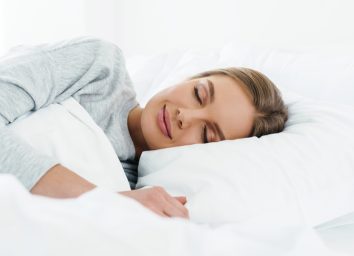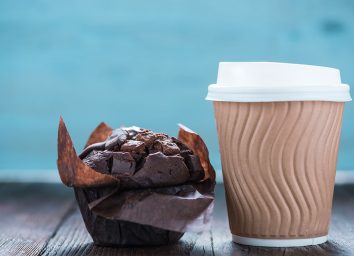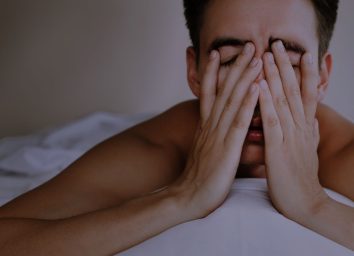26 Things to Do Before Sleep to Lose Weight
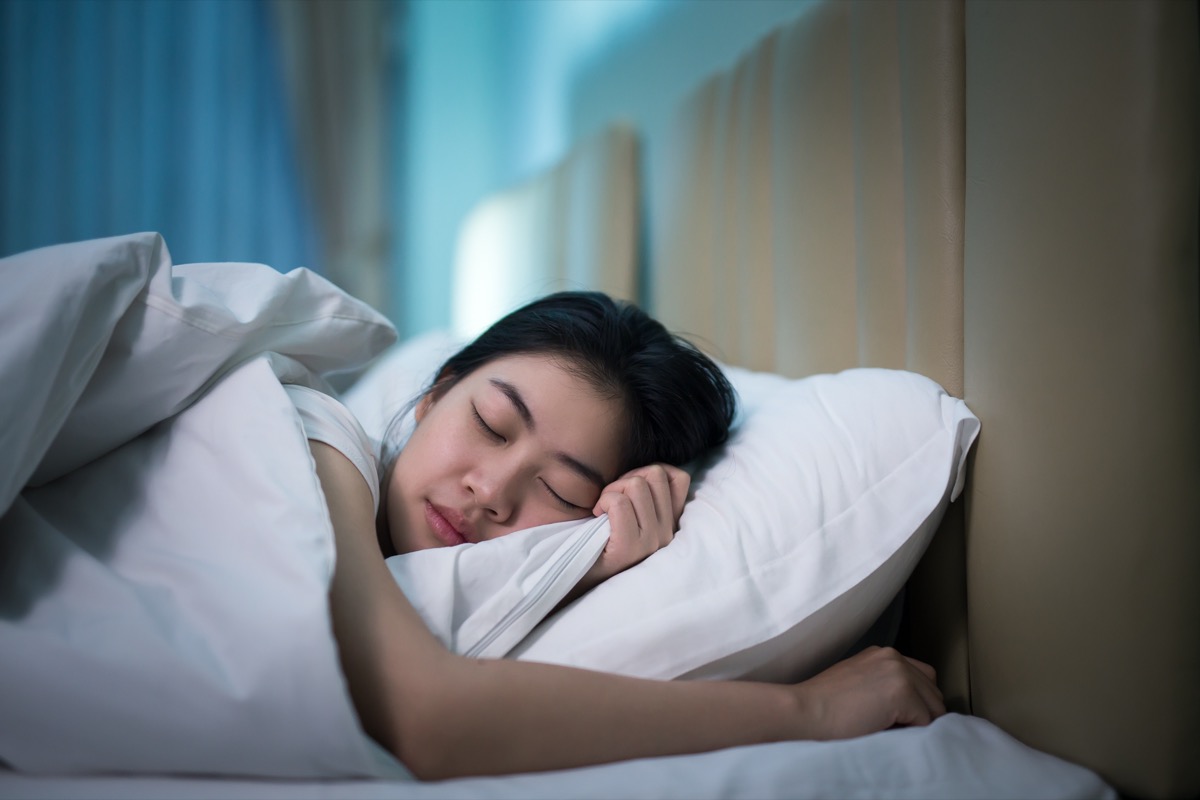
Real, successful, sustainable weight loss can come from achieving excellence in a completely unexpected realm: the bedroom.
It’s true! You can absolutely sleep your way to a slimmer you. In fact, no matter how many pounds you press, how many miles you log, how much kale you crunch, it won’t get you as close to your weight loss goals as you’d expect unless you’re also getting enough quality sleep.
University of Chicago researchers found that sub-par sleep could undermine fat loss by as much as 55%! The good news is just a few simple tweaks to your p.m. routine can mean serious weight loss success. Read on, and for more on how to eat healthy, you won’t want to miss these 21 Best Healthy Cooking Hacks of All Time.
Understand how important sleep is for weight loss.
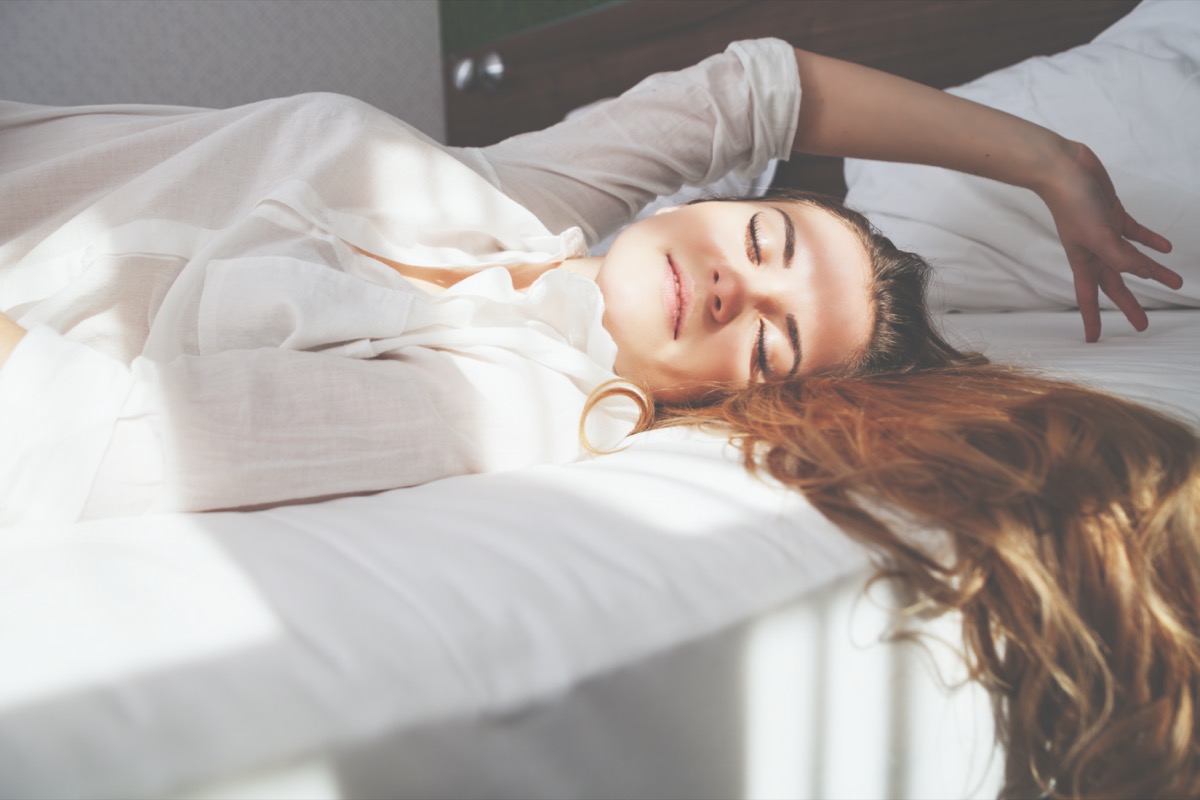
To turn sleep into prime weight loss time, realize how important a good night’s sleep is for optimizing and regulating all your bodily functions, including how you use and store caloric energy. The hunger hormones at play here are leptin and ghrelin. Leptin helps to regulate your energy levels and keep your appetite low, while ghrelin stimulates hunger and often initiates the need to eat. People who get more sleep have reduced ghrelin and increased leptin levels, which helps to control their appetites throughout the day. That was the finding of research conducted at the University of Wisconsin. Another study published in the Archives of Internal Medicine found that overweight people, on average, got 16 minutes less sleep per day than people of regular weight. Although that might not sound like a big difference, those minutes—like your belly fat—accumulate over time.
Sip a cup of tea.

Wind down with a cup of rooibos tea, and burn belly fat while you do it! Naturally decaffeinated, rooibos tea is made from the leaves of the “red bush” plant, grown exclusively in South Africa. What makes rooibos tea particularly good for your belly is a unique and powerful flavonoid called Aspalathin. Research shows this compound can reduce stress hormones that trigger hunger and fat storage, making rooibos one of the best fat-burning foods.
Load up on tryptophan.
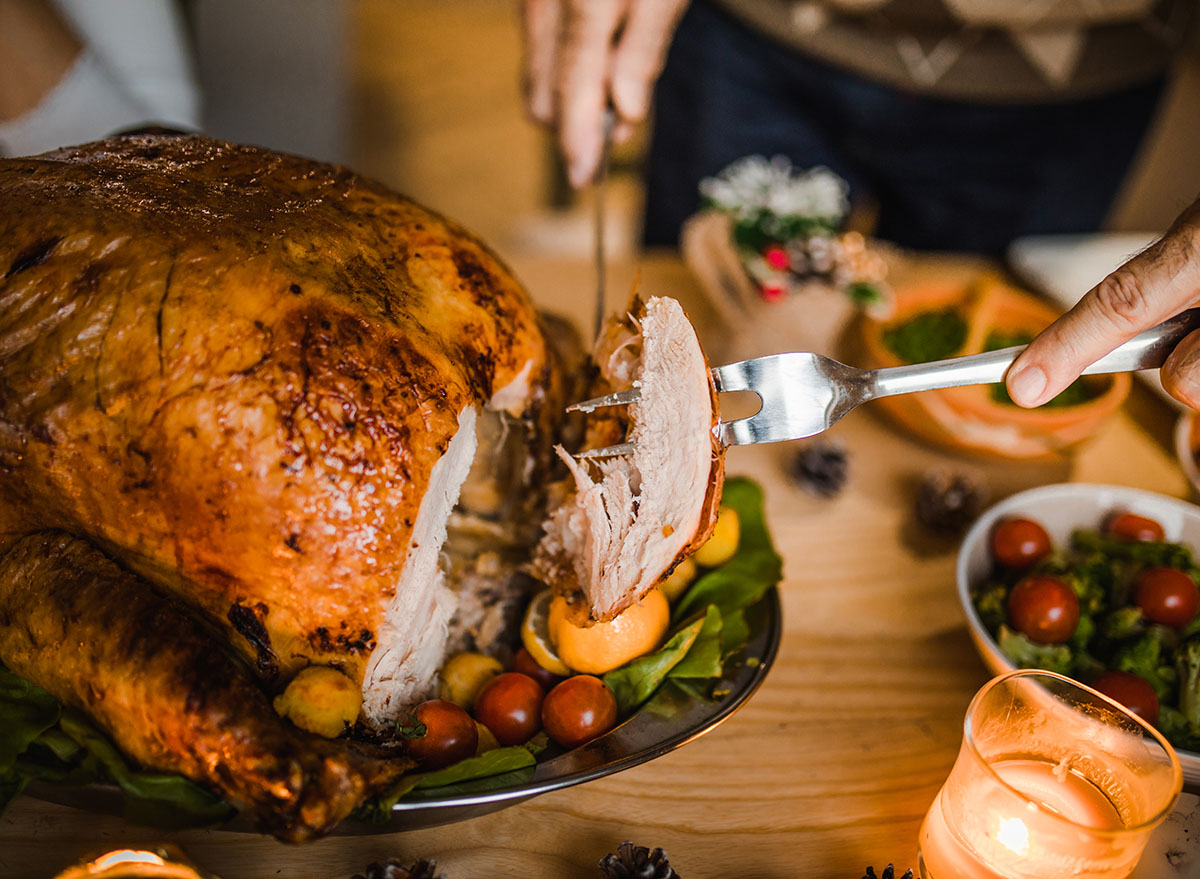
Don’t count sheep, eat lamb! (Or better yet, a bit of turkey.) Tryptophan, an amino acid found in most meats, has demonstrated powerful sleep-inducing effects. A study among insomniacs found that just 1/4 gram—about what you’ll find in a skinless chicken drumstick or three ounces of lean turkey meat—was enough to significantly increase hours of deep sleep. And that can translate into an easy slim-down. Researchers from the University of Colorado found that dieters consumed 6% fewer calories when they got enough sleep. For someone on a 2,000-calorie diet, that’s 120 calories per day, which could amount to nearly a one-pound weight loss in a month! The National Sleep Foundation suggests seven to eight hours of sleep for most adults.
And just so you know, here are The 5 Absolute Best Foods to Eat For Better Sleep.
Eat cottage cheese.
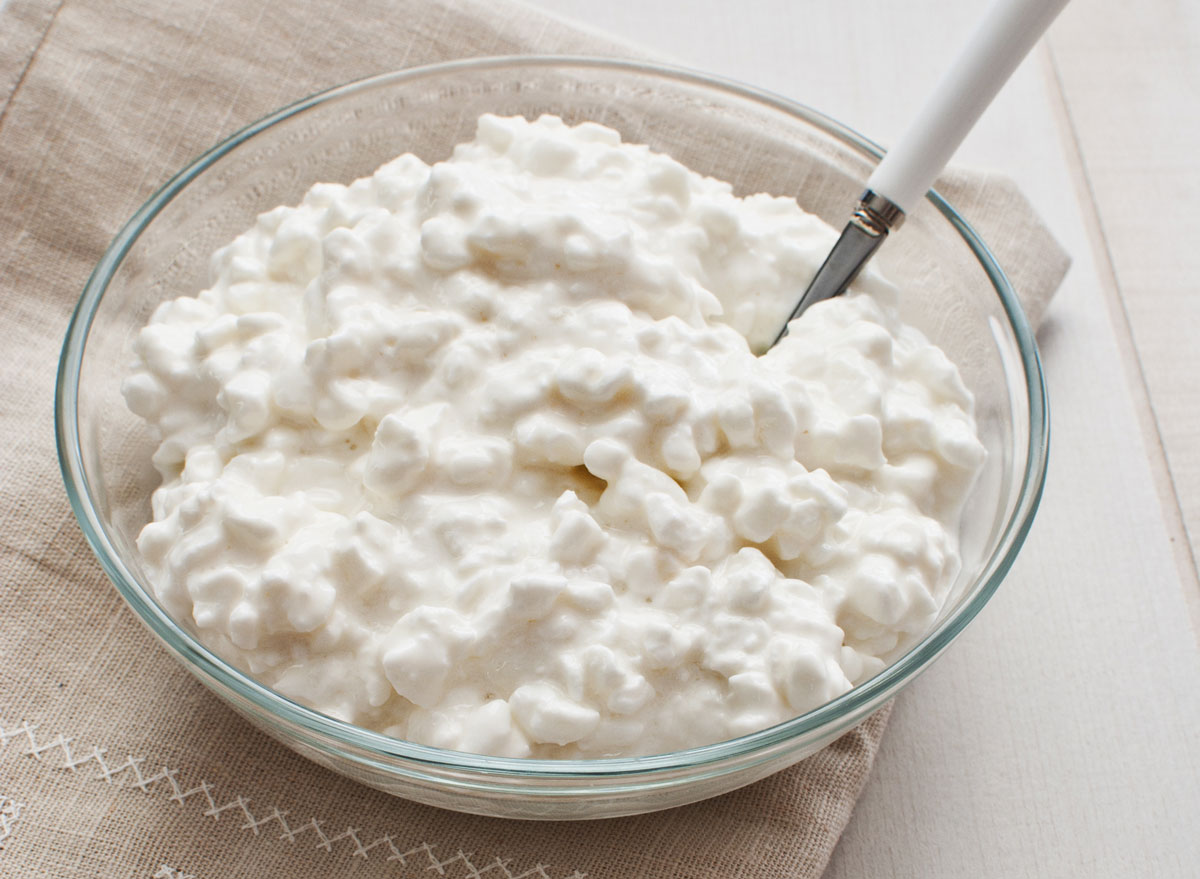
Completely avoiding food before bedtime can actually be bad for your weight loss goals. First, going to bed with a rumbling tummy makes falling asleep difficult. Second, people who wake up feeling hungry are far more likely to pig out on a big breakfast. Have a little cottage cheese before bed. Not only is it rich in digestion-slowing casein protein, but it also contains the sleep-promoting amino acid tryptophan.
Create a routine.
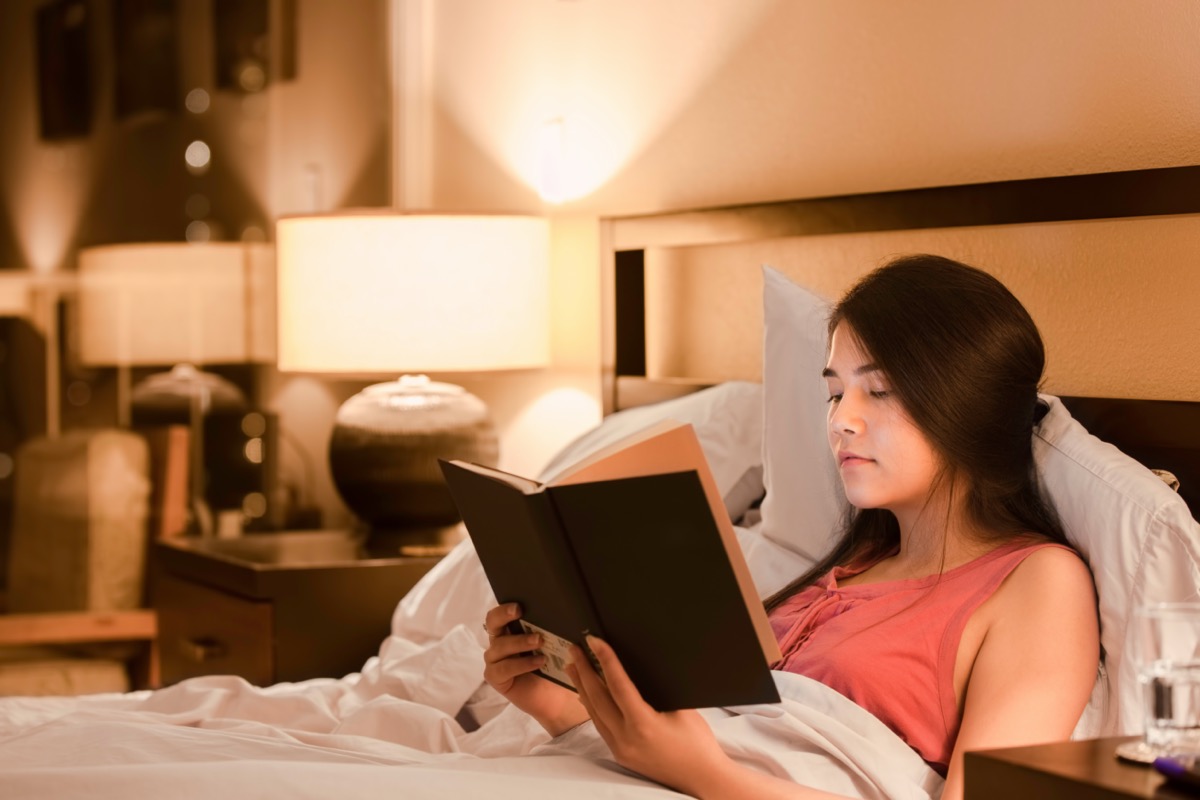
By doing the same thing every night, for at least an hour before bedtime, you’re actually programming sleep triggers. These triggers could include writing in your sleep diary, having a cottage cheese snack, or indeed any other items from this list. Over time, your brain will begin to associate those things with bedtime and fast track you into fat-burning slumber.
Observe strict kitchen hours.
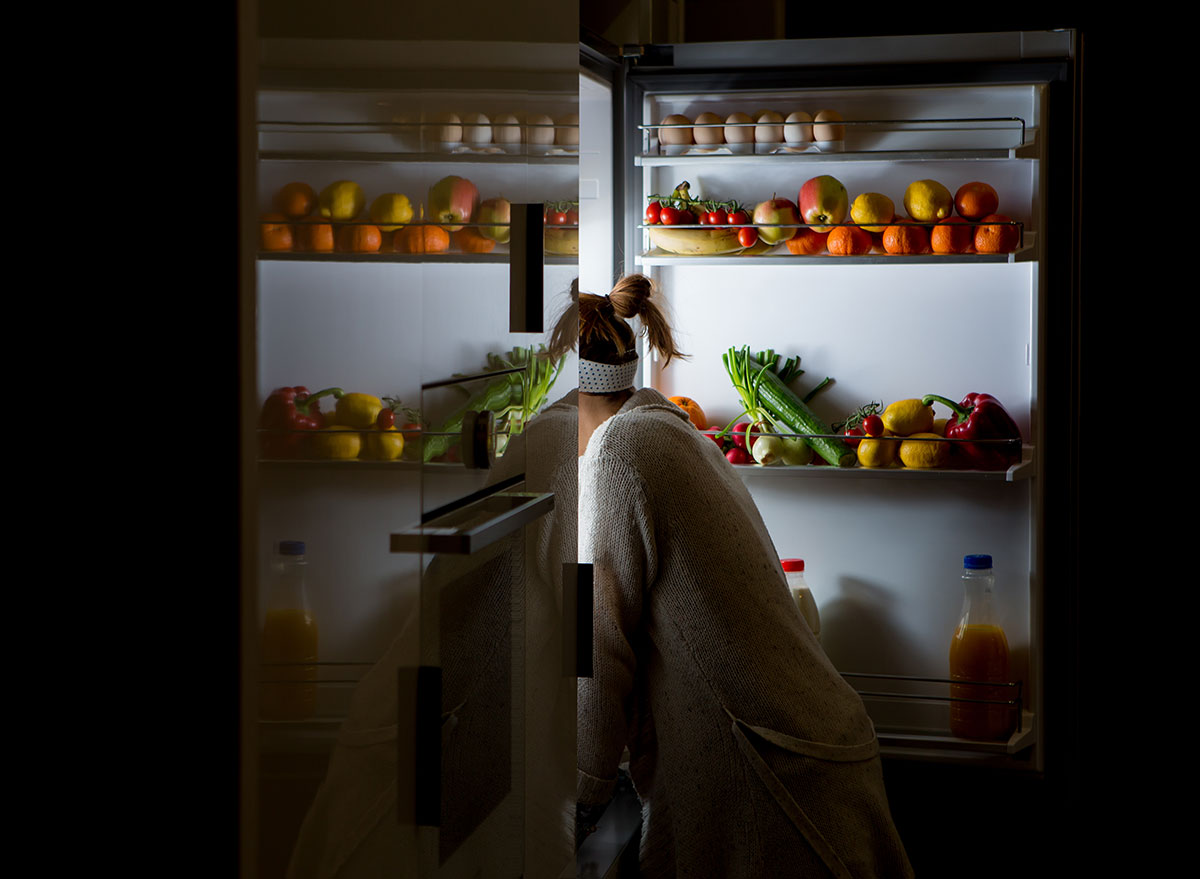
Nighttime fasting—a.k.a. closing the kitchen early—may help you lose more weight, even if you eat more food throughout the day, according to a study in the journal Cell Metabolism. Researchers put groups of mice on a high-fat, high-calorie diet for 100 days. Half of them were allowed to nibble throughout the night and day on a healthy, controlled diet, while the others only had access to food for eight hours, but could eat whatever they wanted. The result of the 16-hour food ban? The fasting mice stayed lean, while the mice who noshed ’round the clock became obese—even though both groups consumed the same amount of calories!
Do some resistance training.

Pre-sleep resistance training can really help to optimize the weight you loss during sleep. According to a journal published in the International Journal of Sport Nutrition, subjects who performed resistance exercises enjoyed a higher resting metabolic rate for an average of 16 hours following their workout. If you usually work out first thing in the morning, your sleepytime weight loss won’t be impacted by that spike in metabolism. Go big, go home, then get into bed.
Relax.

There’s nothing more frustrating than looking at the clock all night and cursing yourself for not being able to drift off at 1 a.m., 2 a.m., and again, at 3 a.m. It certainly doesn’t help things. Take comfort in the fact that that merely relaxing your mind and body will help rejuvenate you in lieu of honest-to-goodness sleep. Once you’re not so excited about your inability to fall asleep, it’ll come more naturally.
Follow the 20-minute rule.
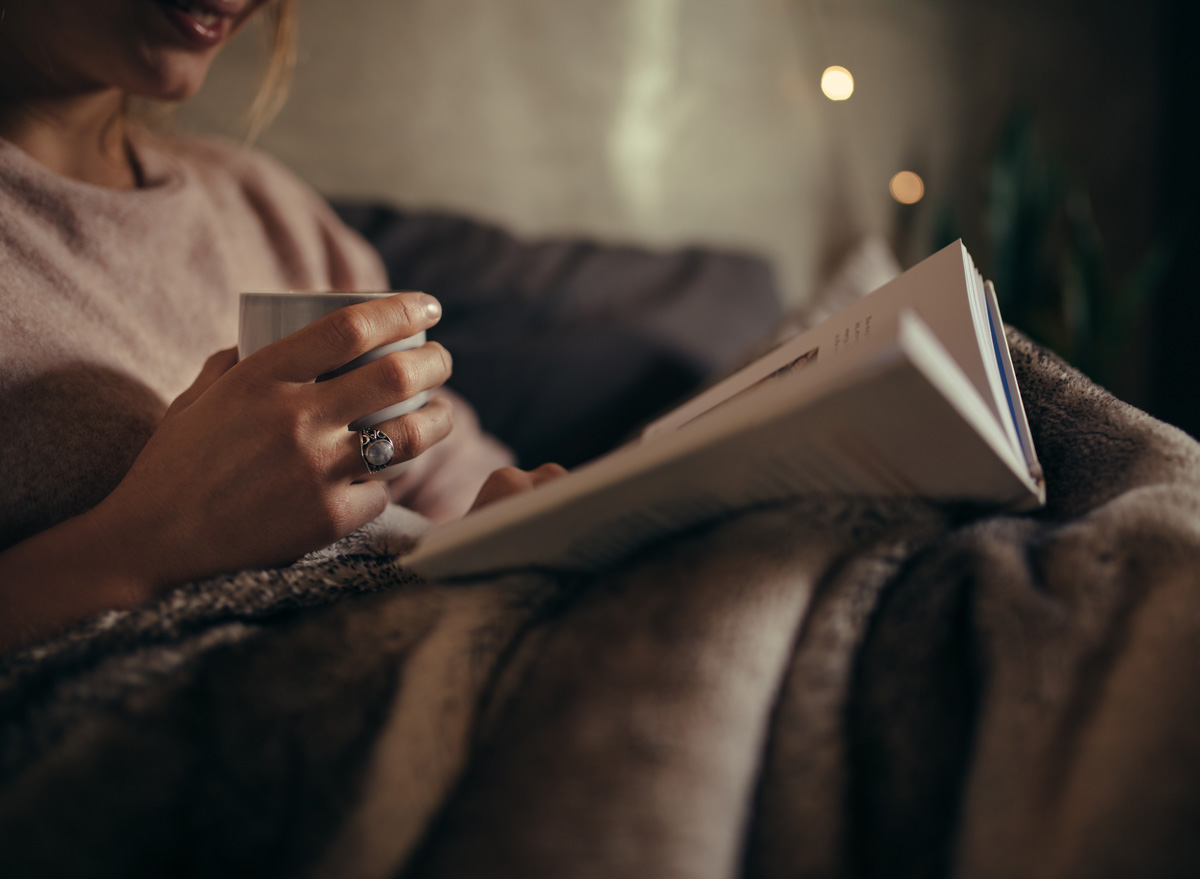
If you’re not getting anywhere after chilling out for 20 minutes, get out of bed, leave the bedroom and do something quiet and unstimulating. Try reading a book, or flipping through a catalog.
Shake things up.
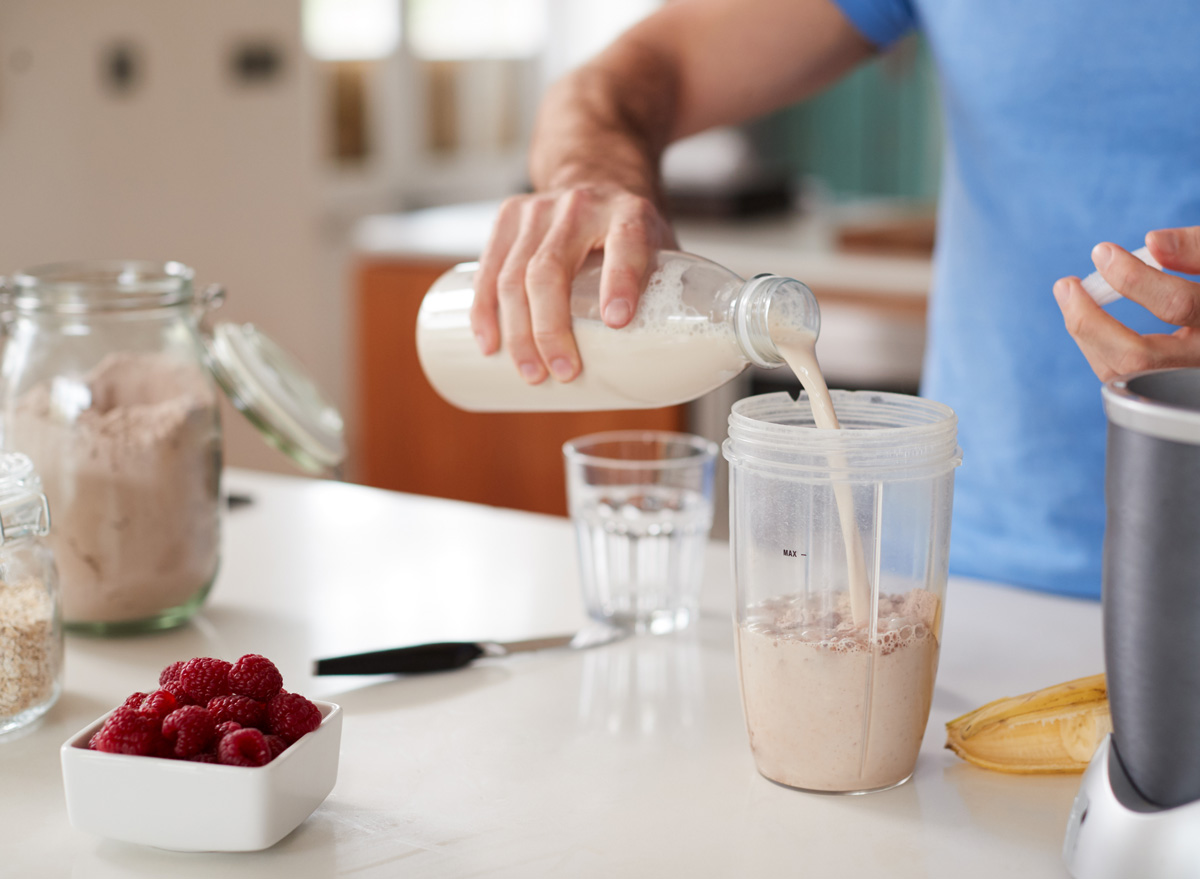
Having a protein shake before hitting the sack may boost your metabolism, according to one Florida State University study. Researchers found that men who consumed good snacks in the evening that included 30 grams of either whey or casein protein had a higher resting metabolic rate the next morning than when eating nothing. Protein is more thermogenic than carbs or fat, meaning your body burns more calories digesting it.
Do some bodyweight exercises.
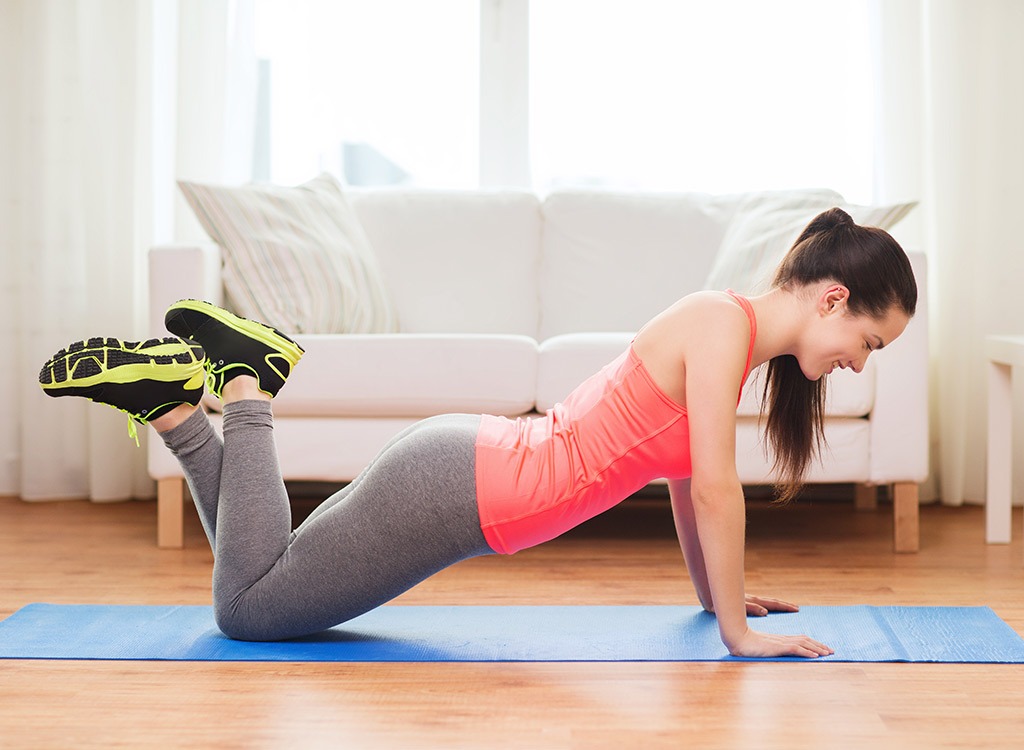
Maybe the rigamarole of getting dressed and going to the gym after dark isn’t for you, and that’s understandable. But that doesn’t mean you can’t use your body weight for a quick workout before bed. According to Combat the Fat author Jeff Anderson, bodyweight exercises target muscle in a unique way due to the effect of fighting gravity. Examples of these exercises include push-ups, pull-ups, dips and bodyweight squats.
Make a to-do list.
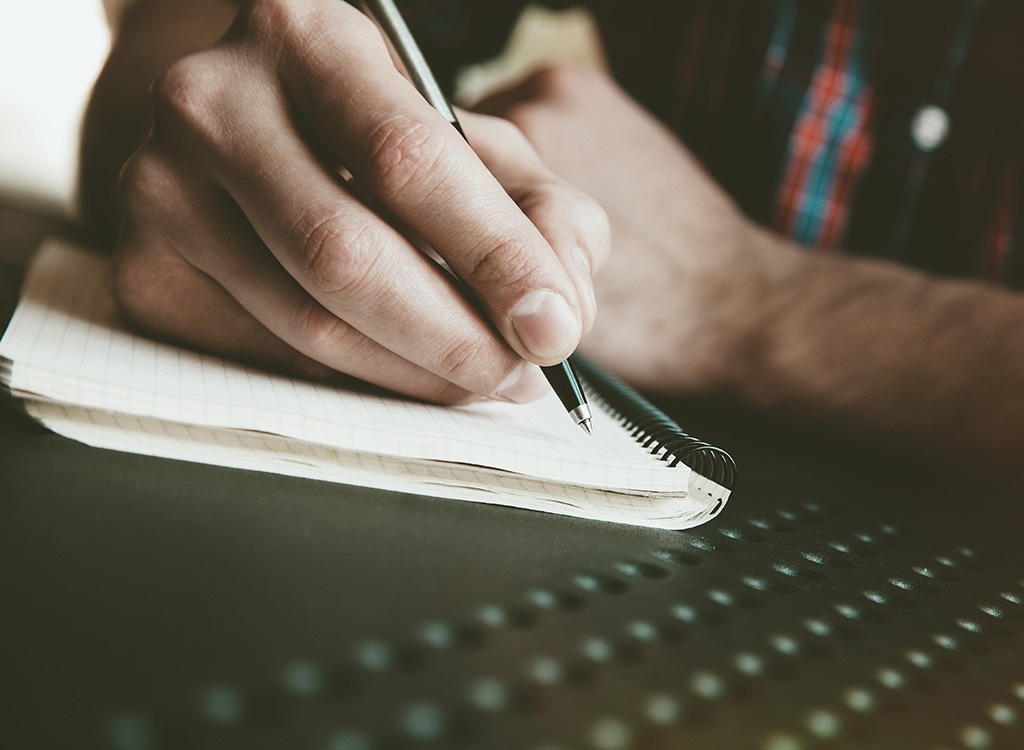
Thoughts of a busy day whizzing around your head won’t help you get in the right condition for a relaxing 8-hour sleep shift. Try writing down everything you need to do the next day. It can make your life seem more manageable.
Fit in late cardio.

Examples of cardio include walking around the neighborhood, walking or running up and down the stairs, jogging and/or riding an exercise bike. Adding activities like these to your pre-bed routine can help you to burn belly fat. Bonus points if you can do a little resistance training immediately before your late cardio session. Studies show that cardio is more effective if you do it immediately after weightlifting or bodyweight exercises.
Turn down the thermostat.
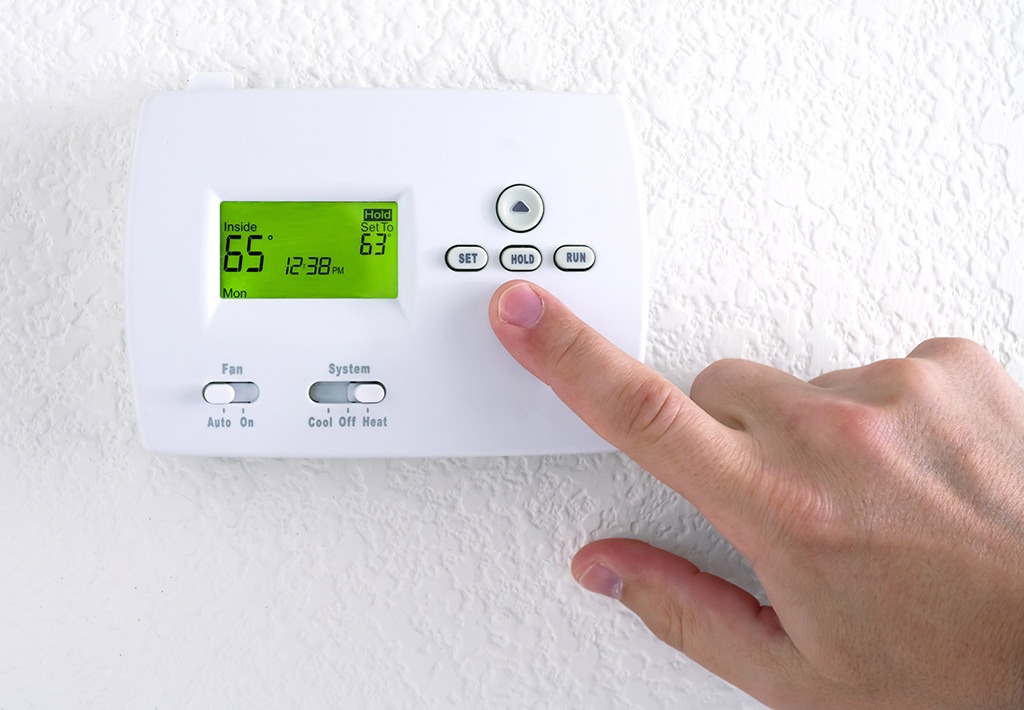
A striking new study published in the journal Diabetes suggests that simply blasting the air conditioner or turning down the heat in winter may help us attack belly fat while we sleep. Colder temperatures subtly enhance the effectiveness of our stores of brown fat—fat keeps you warm by helping you burn through the fat stored in your belly. Participants spent a few weeks sleeping in bedrooms with varying temperatures: a neutral 75 degrees, a cool 66 degrees, and a balmy 81 degrees. After four weeks of sleeping at 66 degrees, the subjects had almost doubled their volumes of brown fat. (And yes, that means they lost belly fat.)
Take a bath or shower.
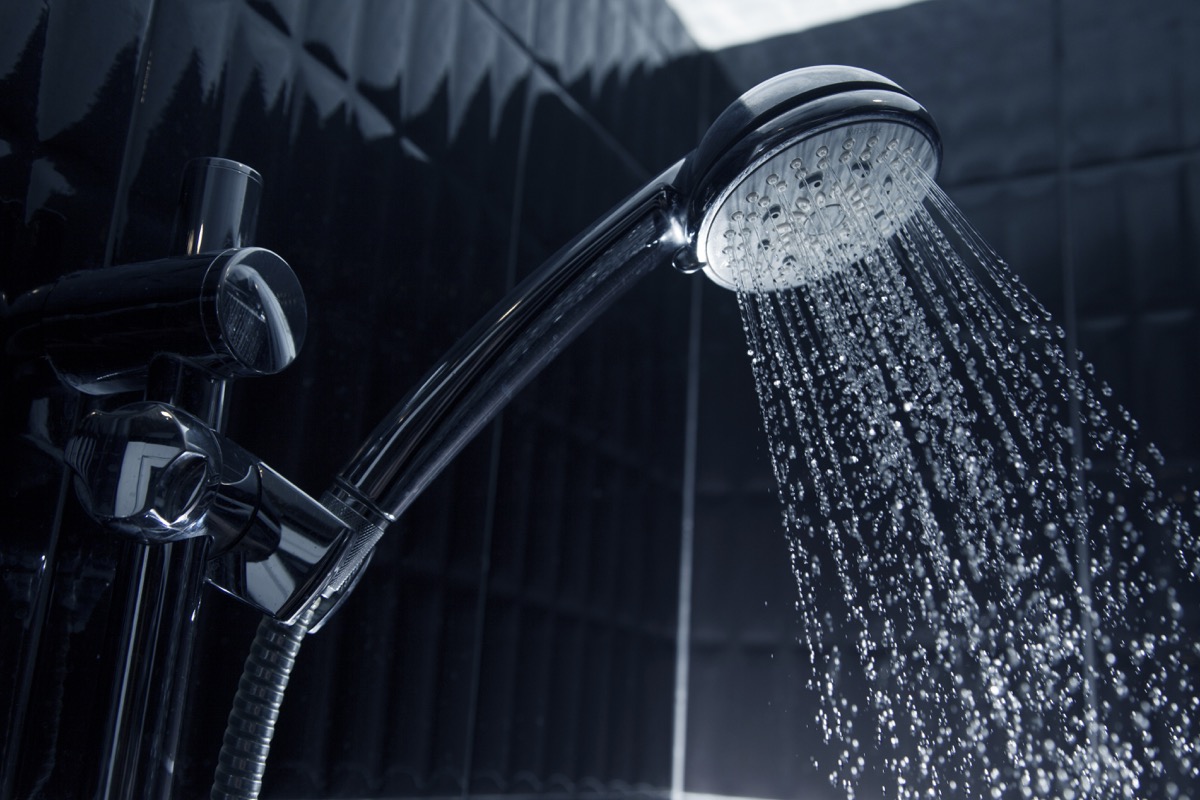
A UCLA study of some of the world’s last remaining hunter-gatherer tribes noted that temperature drops were an important sleep cue for our Paleolithic forebears. We no longer sleep under the stars that much, but you can recreate a sunset-like temperature drop by taking a hot bath or shower. The dip might make your pound-shedding shuteye deeper and make you fall asleep faster.
Take some mint.

Certain scents can make your mouth water, and others can actually suppress your appetite. One study published in the Journal of Neurological and Orthopaedic Medicine found that people who sniffed peppermint every two hours lost an average of 5 pounds a month! Banana, green apple, and vanilla had similar effects. Consider burning a minty candle until you head to bed to fill the room with slimming smells. If you don’t want to bother with blowing out candles before you turn down the covers, try adding a few drops of peppermint oil to your pillow. A small cup of peppermint tea (which just so happens to be one of these best teas for weight loss) is another option worth trying.
Do crunches.

According to Anderson, new research suggests that you may be able to spot reduce body fat from your abdomen. Before hitting the sheets do a giant set of crunches, reverse crunches, and side jackknifes. Then go to sleep safe in the knowledge that you’ve given your body a little help in shifting that tire while you’re zonked out.
Throw out your night light.
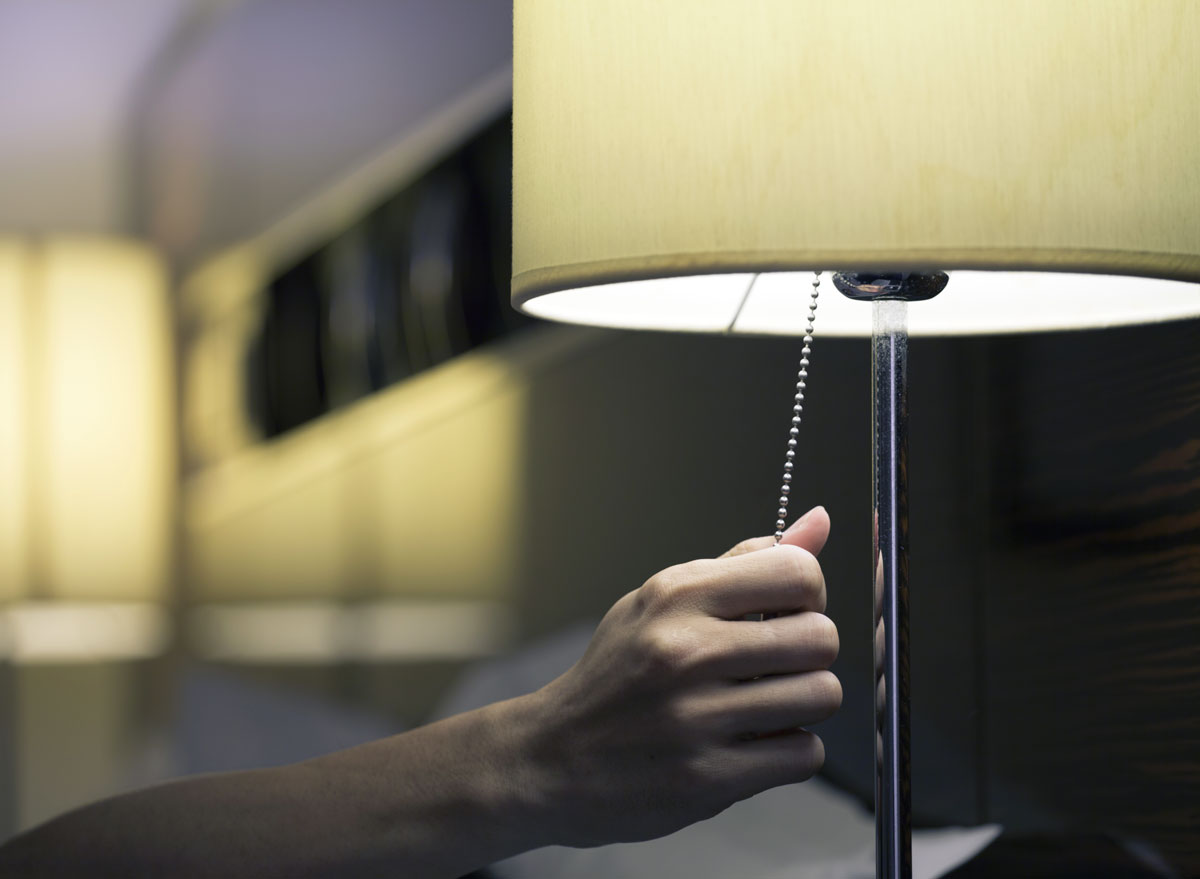
Exposure to light at night doesn’t just interrupt your chances of a great night’s sleep, it may also result in weight gain, according to a new study published in the American Journal of Epidemiology. Study subjects who slept in the darkest rooms were 21% less likely to be obese than those sleeping in the lightest rooms.
Eat some carbs.
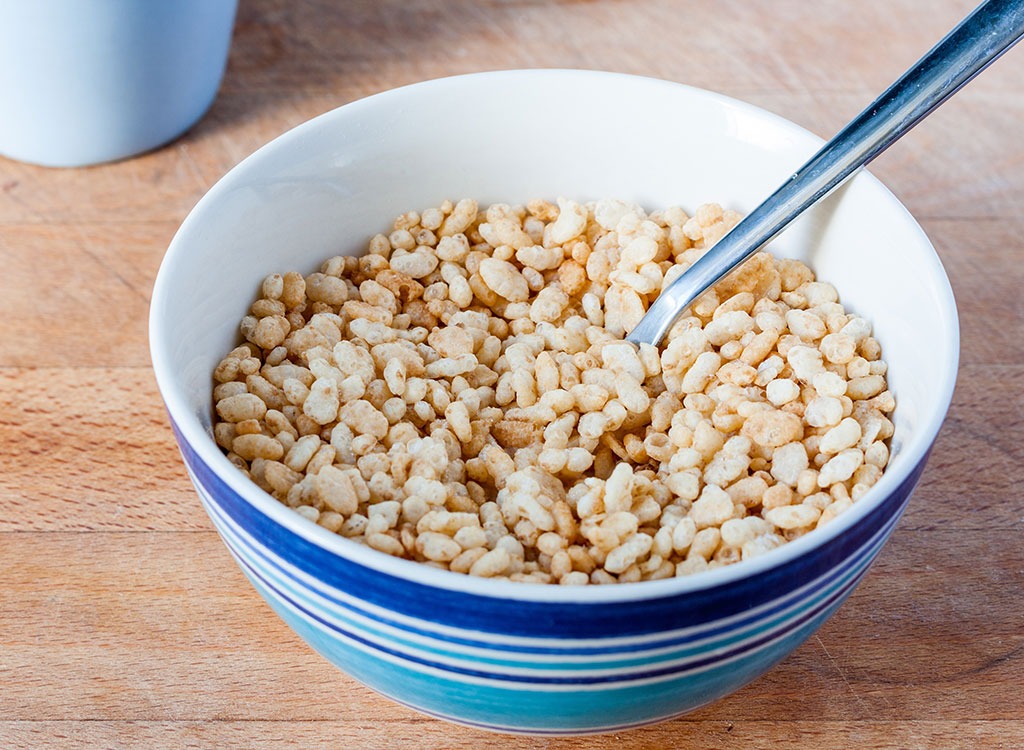
Ready for some controversy? Eating carbs before bed may not be a bad idea if you want to lose some weight! Seventy-eight obese members of the Israeli Police Force took part in a 6-month randomized clinical trial. The experimental group was prescribed a low-calorie diet (20% protein, 30–35% fat, 45–50% carbohydrates, 1,300–1,500 kcal) that provided carbohydrates mostly at dinner. The control group consumed a similar diet, except that carbohydrate intake was spread throughout the day. After six months, the group eating most of their carbs at night lost slightly more weight and body fat and experienced greater reductions in waist circumference. Want to give it a try? Choose from these best healthy carbs!
Strike a pose.

By the time you’ve had your time on this mortal coil, you’ll have spent up to 30 years asleep. To get the most out of that investment, you’d better figure out which sleeping posture you find most restorative, then build your bed around it. You can do that by buying the right mattress and pillow to mitigate against any areas of discomfort. If you sleep on your side, putting a pillow between your legs will minimize twisting strain on your lower back, while hip pain can be lessened by using a mattress topper to help soften and contour your body.
Hide your phone.
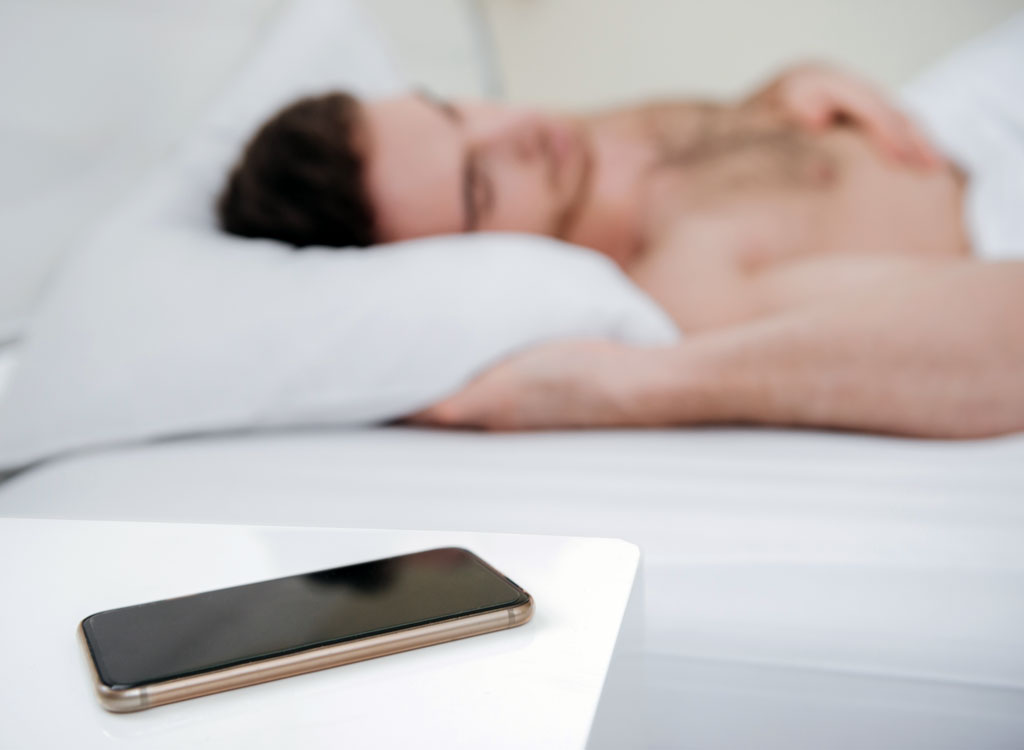
The more electronics we bring into the bedroom, the fatter we get—especially among children. A study in the Pediatric Obesity journal found that kids who bask in the nighttime glow of a TV or computer don’t get enough rest and suffer from poor lifestyle habits. Researchers found that students with access to one electronic device were 1.47 times as likely to be overweight as kids with no devices in the bedroom. That increased to 2.57 times for kids with three devices. Even if you’re a full-grown adult, it’s best to leave your iPad in the living room.
Turn down the blue light from devices.
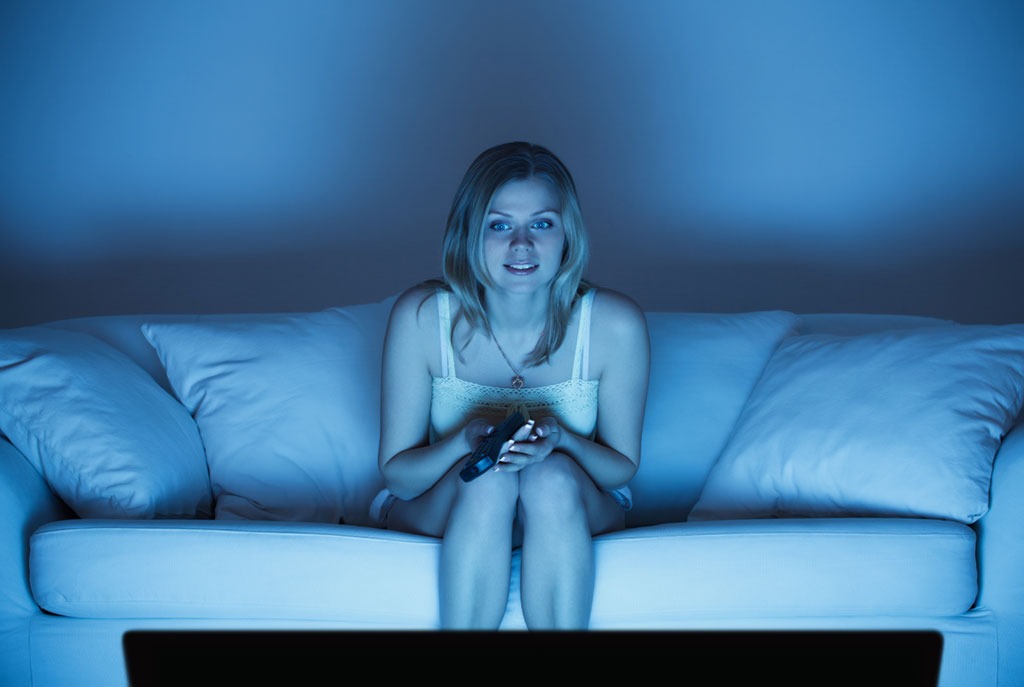
Use an app like F.lux or Night mode on Apple products to reduce the blue light emitting from your computer and smartphone. It works by eliminating eye strain from the harsh light that inhibits melatonin production. Melatonin is the hormone responsible for regulating sleep rhythms. The latest iPhone and iPads have a similar built-in feature called Night Shift.
Start a sleep diary.

Do you really have an accurate read on how much sleep you are or aren’t getting? It’s always best to work from data, even if you’re the one logging the quality and duration of your sleep. Simply list each complete hour you were asleep in bed, and each partial hour (including naps). Then make a note of the events that may have influenced your sleep. Did you exercise that day? Drink a lot of coffee? After two weeks, read through the whole thing, looking for patterns. The results may surprise you—and help you with your weight loss goals. Speaking of diaries, you can also keep a food journal to lose weight. Learn how with The Expert Guide to Keeping a Food Journal for Effective Weight Loss.
Breathe through your nose.

Why? Well, first it will prevent snoring. That will not only improve your sleep but also the sleep of anybody else in earshot. Secondly, it provides more oxygenation, so you can take those deep breaths that help to relax the body. Use Breathe Right strips if you’re stuffy.
Understand your circadian rhythm type.
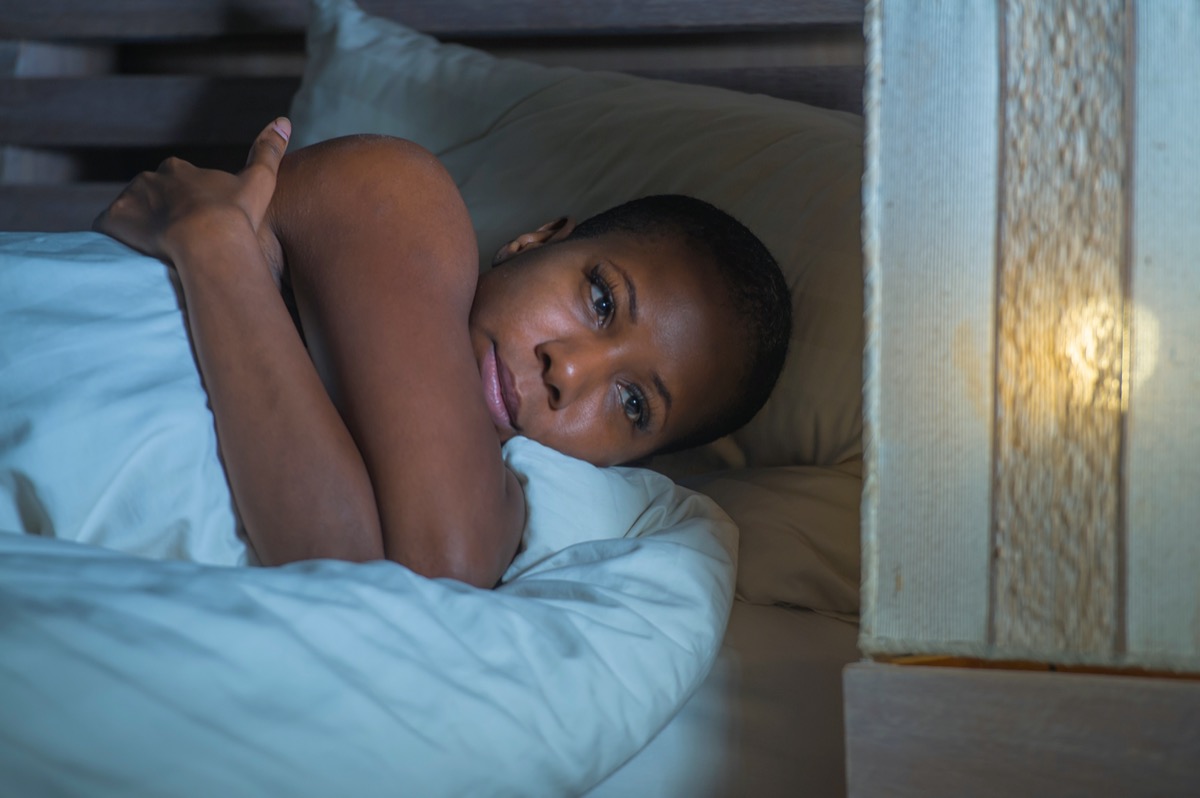
Pay attention to the times you feel and perform at your best, when you naturally wake without an alarm clock, and when you start to feel sleepy in the evenings. Add this info to your sleep diary. This information will tell you about your “chronotype” which will allow you to set healthy sleep goals that work with your natural rhythms. A free online assessment at the Center for Environmental Therapeutics can help you find your type, and provide related advice.
Plan small, steady meals for throughout the day.
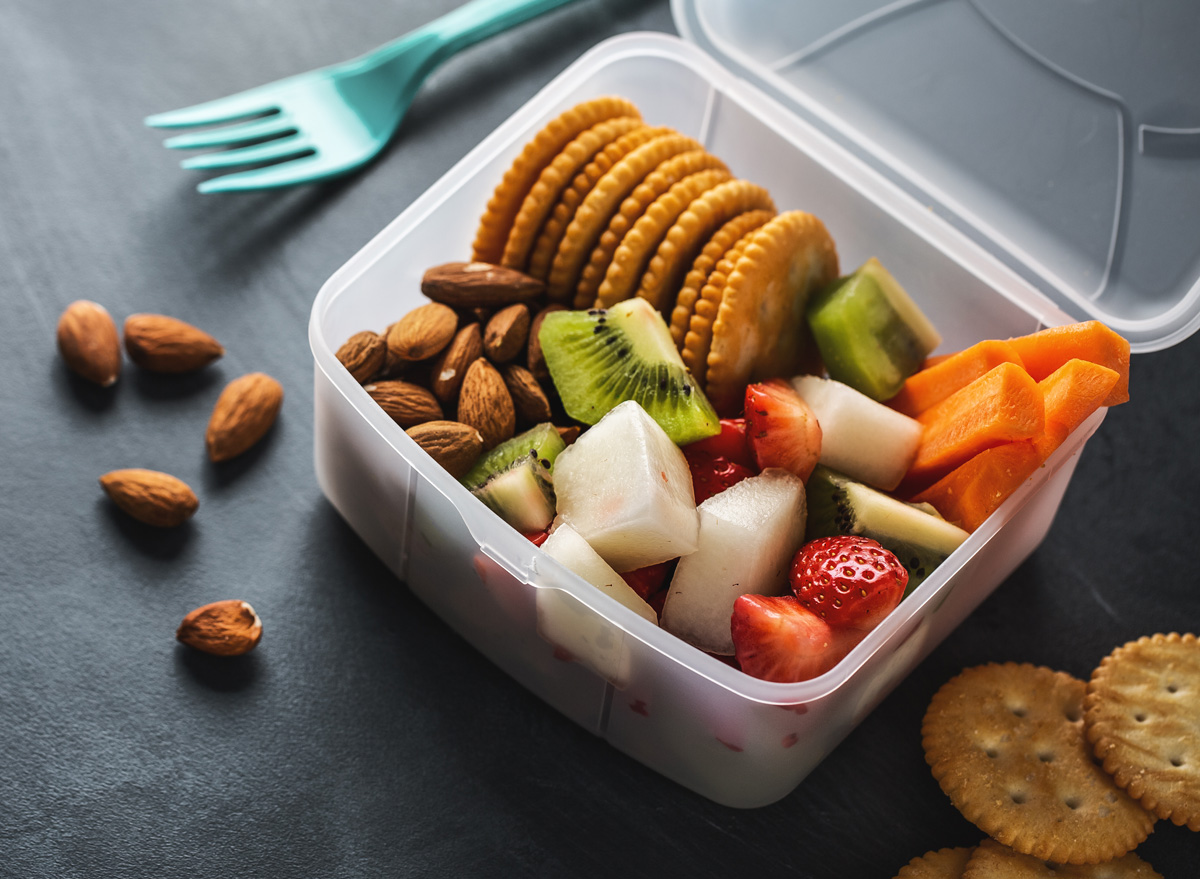
Eating small, nutrient-dense meals frequently throughout the day serves to keep your metabolism ticking, and will ensure your body continues burning fat throughout the night. Furthermore, eating frequently will ensure your appetite is kept in check, which will reduce any cravings you have when you wake. For some mid-meal ideas, check out these 50 Healthy Snack Ideas to Keep You Slim.
